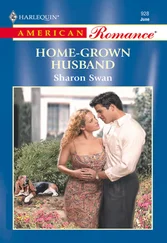I and the couple of guys I ran with paid a bitter kind of attention to Tonnie Ray and her type. We’d watch her collar some cheerleader, or class officer, or football player and start chattering away with them, making out to have crucial deals going with the honchos of the school. The guys and I winked at each other as her nervous voice rose in cries when she spotted somebody important in the hall. I don’t know why Tonnie Ray and all the roaches rubbed us so raw. But we despised them from a special place of hatred in our hearts. We hated them so much that we’d skip lunch and loiter out in the hall in hopes of seeing one of them in the act.
“Look at Tonnie Ray leach up to that cheerleader babe,” I said to a guy.
“I know. Wouldn’t you love to put a shotgun down her throat and let it off coupla times?”
“It wouldn’t be enough.”
I confess that the guys and I, who weren’t really hoodlums at all, talked theoretically on and off of assassinating Tonnie Ray. We had a prolonged deliberation over this idea throughout the rest of high school, but never could imagine anything quite excruciating enough for her. And we beheld with agony the fact that Tonnie Ray was making friends, she was getting in with the popular set; she became stylish and finally, to our horror, was one of the “Personalities of the Week” in the student newspaper.
“I say once a roach, always a roach,” one guy said.
“Damn right.” We were a bereaved consensus of three.
“Wouldn’t you like to pick up a pair of ice tongs and just …”
“Not good enough.”
We had the mill girls at Dream of Pines, too. These were the daughters of anybody who held a position below master foreman at one of the paper mills. Some of these gals were twenty-one and had given birth. These girls didn’t roach or advertise themselves. They even seemed to resent being spoken to by students above their class. Of course you noticed them right off; their clothes were not terribly sharp and they tended to be a bit bruised around the legs. They swarmed in at lunch from another building where vocational arts were taught. They’d look at you straightforwardly with either lust or disdain, and you could pick up on un-known swear words by just hanging back in a locker and listening to them crowd into the cafeteria line. We liked them. We looked studiously at their bosoms and hips and had nothing to say when they disappeared.
I fell hard for one of them, under the influence of a dream I had of her. In the dream she was completely charming, said nothing, and was lusciously red-haired, and just before I awoke, she coyly threw her wrap aside and was milk naked. It was one of those dreams that mesmerizes your waking life. I waited in torture to see her again. When she came in with them, I tried to get her attention but couldn’t. Her name was Ann. She had fine orangish hair and passable skin. Her hair was actually her best feature, but she peroxided her bangs so her hair went into toasted yellow around her face. Ann never wore a dress to school — always pants, with a raincoat like dirty beach sand thrown over her and a tee shirt underneath. The raincoat had a habit of draping on one nipple to one side and exposing the other slightly, the way it dropped. Ann dear, with that unamused face of an operatic slut, gave the impression that she wouldn’t have cared if she had a burning sparkler on both nipples.
I already knew she worked at the old man’s mattress factory in the afternoons. Her father worked there too, in another shop. He was a legendary wino who’d probably vomited or slept on every square foot of the pavement in Dream of Pines at one time or another. But he could cure himself for periods reaching to a year. Her mother was some species of obese dwarf who wore a swath of garbage for a dress and black high-top tennis shoes. I’d seen the mother before on the porch of a two-room plank house hard by the biggest Sink mill. Ann’s old man used to work at the mill until he lucked into a place with the mattress factory. The mother waited for them sitting on the porch and just being a slum unto herself. God knows what she fixed them to eat. I often thought about that. I could see Ann, who by the family standard was Helen of Troy, being slowly destroyed by some monotonous supper of grease and cornmeal wads.
Three days a week she skipped lunch because, I guess, she didn’t want to pay the quarter. She’d sit in the Film Room, right outside the cafeteria, and wait for her friends. While as for me, I always had a bunch of dollar bills in my wallet. She needed me; I knew she did. In my dream she’d been so happy to please, and the body which she had let me see I loved and pitied too for its helplessness. My feeling for her threw me. It got me in soft places I didn’t know I had. I was a fool over some rare idea like taking her out to my house and giving her a shower and letting her sit on the edge of my bed in a towel and holding her face in my hands.
There was a story about Ann. Back in the tenth grade she was rumored to have given birth to a dead child. She was known to be a follower of the Dream of Pines basket-ball team, and some boy on the varsity was supposed to be the father. I saw her on the front row at the gym several times, sitting in her raincoat, alone, smiling out at the court as if enchanted by the game in a calm way. She didn’t clap, or cheer, and was otherwise placid — not strictly a fan — except for the fixed smile. I used to think she was an idiot or a gypsy. She looked a little like the woman on a package of Muriel cigars. She smoked in the gym while she sat there, This was not allowed; there were signs up all over the place, and I saw her get called down for it several times. She never hid her cigarettes and in a minute she’d have another one going strong and have to be spoken to again by somebody officious like the scorekeeper, who was also a Baptist preacher. Well, about the third time he walked over to her, I thought she was just clearly insane. But she finally quit smoking when he told her she’d have to leave the gym if she didn’t. And she remained transfixed to the game with the smile getting dimmer and dimmer as the game neared a close. Nowadays she never smiled, that I knew of. She ran with a crowd of girls that looked like hicks, lady wrestlers and carnival women. I wondered if it was true about her baby. Maybe having it had hurt her, and maybe she was pregnant again, and maybe eating made her sick. No wonder she looked right through me when I said hello and called her name in the hall.
Dear Ann you need me, need me, I beckoned to her mentally. My good looks, my sympathy, my $800 checking account. What do I care if you’re in trouble again? You haven’t ever met anybody like me before. I don’t run. I know what life’s about. I believe in my dream about you. I’ll watch you give birth, even in Mexico if that’s what it takes. I know life, honey. The ins and outs: no sweat. I’ll watch the baby come out , dearest, and kiss your lips when it’s over. I know it’ll hurt and you’ve been hurt so much al-ready. And about other matters that might come up: I won’t expect marital privileges with you. I mean not until a whole lot of soft talking between you and me. I imagined us together in a modest cottage overlooking the Pacific Ocean at Malibu, California, by this time. I would be a fisherman and bring back natural things to eat from the hills. National Geographic illuminations of blue, green, and wheaten shades, with rocks, surf, and coves as private as the planet Mars, took over my head and carried me sleepily down all the roads of color-photograph geography. I did feel sleepy throughout all this thinking about Ann and me. I’m the sort of fellow, anyway, who isn’t inclined to ever bring himself fully awake. I have a tremendous respect for people who do meet life with eyes wide-awake — like Ann, for example — but I’ve always been a coward that way; I think that if I ever did wake up completely, life would be too harsh and would lead me to suicide. Whereas, at the borders of sleep, I’ve usually adored life and could take down every breakfast bowl of thorns that came along.
Читать дальше












